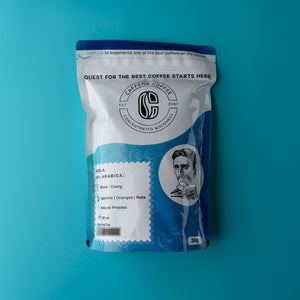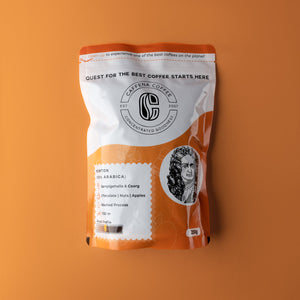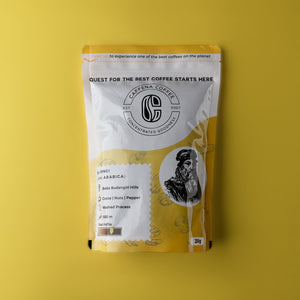It’s long been understood by roasters, baristas and geeks that coffee is at its best and ready to consume somewhere around 7 to14 days after its been roasted.
For the first 7 days, the coffee is not ready yet, as it is still releasing CO2 and in the degassing stage. Degassing will end up hindering your extraction during the brewing process. On the other hand, coffee that’s older than 14 days is viewed as stale and it's assumed that the coffee’s sweetness and acidity are in decline at this stage; but this isn’t true with all coffees.
With a wide array of variables such as bean quality, coffee processing, altitude, varietal, roast process and more playing a role in just how fresh your coffee is, you should never judge the quality of the coffee beans solely with roast dates.
Unlike fresh food, you can’t judge the freshness by sight or touch, for example, like the bruising on an onion, or the firmness of an avocado, so at the very least, you’ll need to open the bag of coffee and get brewing and test with a few cups over a few days to spot the ideal taste for you.
What’s the ideal roast date?
When you buy coffee, treat it like regular perishable food such as bread so only buy enough coffee to get you through the week; I recommend you DON’T bulk buy.
That being said, if the roaster has labelled the peak roast age on the packaging take that into consideration because not all coffee is going to be the same. After long standing studies into the topic and interactions with multiple 4th and 5th gen roasters from around the world, we came to this understanding. And so, the question stands…
Is Fresher Really Better?
This has been a constant debate among the community. While many roasting professionals typically claim average age ceilings on their roasted coffee, scientifically speaking there are simply too many variables to give a definitive answer.
Why is there so much confusion figuring out when coffee is past its prime?
For starters, the actual coffee itself will play a major role in how well it ages after being roasted. Also, different coffee roasters use their own personal roasting styles which can change a coffee’s ageing profile, causing it to age or peak differently.
So as you can see, having a coffee prime date, set-in-stone is extremely difficult if not impossible with so many variables coming into play.
While some coffees will peak within 14 days and deteriorate rapidly after that, others can be at their best closer to 30 days from the date of the roast with a slower aging process.
The only way to actually know if your coffee is at its best is to taste and when in doubt ask your local roaster or barista who will always be able to give you the best advice on a particular coffee.
Fresher really isn’t better when it comes to whole coffee. The misconception of fresher the coffee, the better comes from “artisanal roasters” trying to differentiate themselves from the bigger commercial coffee roasters. By selling by the roast date instead of the expiry date found on other retail bags of coffee they’re trying to be superior from the competition by somehow distinguishing themselves of being better quality and a higher standard coffee bean.





